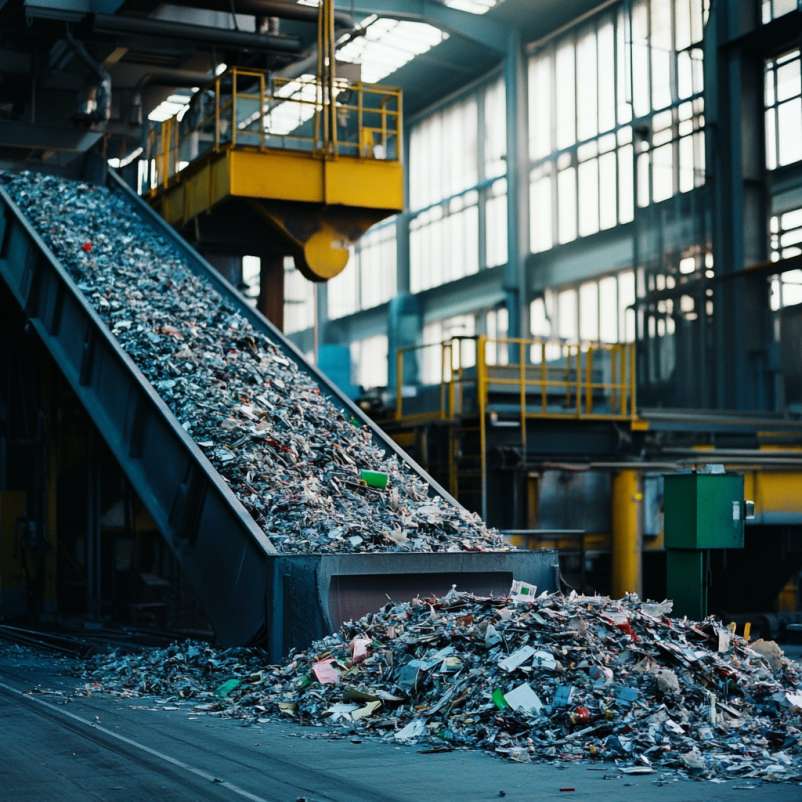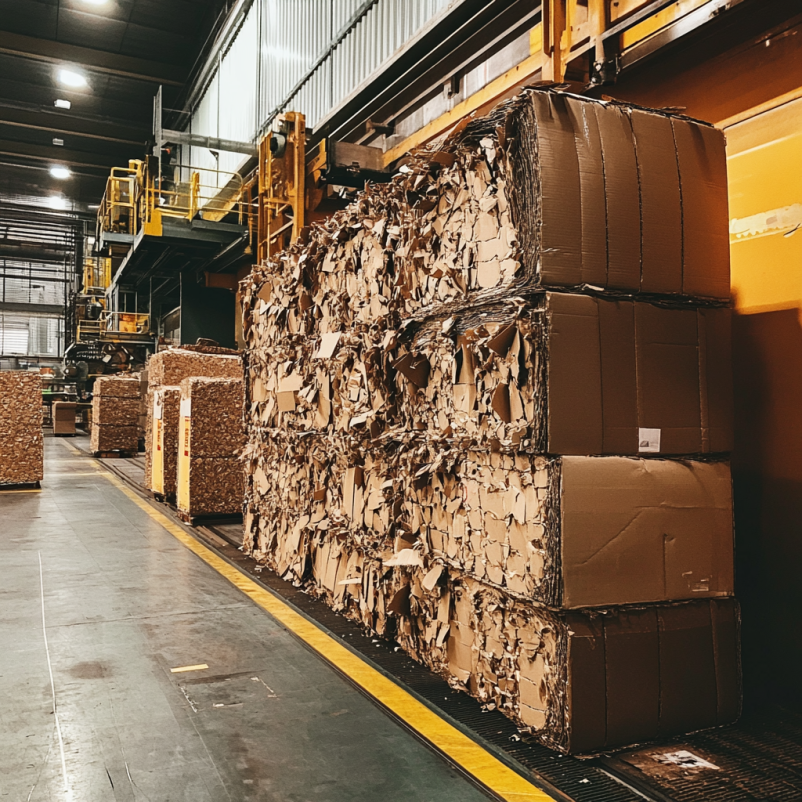
The Environmental Services Association (ESA) has published a market research report stating the sector employs approximately 147,000 people across the country and handles an estimated 70.7 million tonnes of waste each year. This includes 30.4 million tonnes of household waste collected by local authorities and 40.4 million tonnes of commercial and industrial waste.
The report also details the financial investment in waste services, with local authorities in England spending £5.8 billion on waste management in 2021/22 alone.
One of the key components in modern recycling processes is the geared motor, a powerful and efficient device that enables the smooth operation of recycling equipment.
Geared motors are indispensable in the recycling industry. From the initial sorting and separation of materials to the final processing and packaging stages, geared motors are present in every aspect of the recycling process.
These devices are designed to withstand the demanding conditions of recycling facilities, including high torque requirements, frequent start-stop cycles, and harsh environmental conditions, necessitating the use of specialised geared motors that can withstand these challenges.
They enable the automation of many tasks, reducing manual labor and increasing overall efficiency. As the sector continues to strive for sustainability, having already reduced its emissions by 46% since 1990 and aiming to achieve net-zero emissions by 2040, the importance of efficient and effective recycling processes has never been more pressing.
In the following sections, we will delve deeper into the uses of geared motors in the recycling industry, discussing their benefits, selection criteria, and the solutions offered by Betech, a leading supplier of industrial electrical motors and gearboxes.

Conveyors are the backbone of any recycling facility, responsible for transporting materials between different processing stages. Geared motors power these systems, providing the necessary torque and speed to handle diverse materials, from lightweight plastics to heavier metals.
Their precision allows for accurate sorting, ensuring that materials are correctly categorised for further processing or recycling.
Geared motors in conveyor systems provide:
In sorting systems, geared motors enable:
Shredders and grinders are integral to the preprocessing stage in recycling facilities, where massive quantities of waste materials are reduced to smaller, more manageable sizes. Geared motors power these heavy-duty machines, allowing them to function continuously and handle large volumes of material.
The motors employed in such applications must withstand the constant vibrations and high torque demands of continuous operation.
Some shredders and grinders use hydraulic systems for their main drive, while geared motors are utilised for secondary functions such as turning, tilting, or rotating key components.
The geared motors used in these machines are designed for ruggedness and can run at high speeds, making quick work of tough materials like plastic, paper, glass, and metals.
Geared motors in shredders and grinders offer:
Balers and compactors reduce the volume of recyclable materials, making storage and transportation more efficient. In these machines, geared motors provide the force needed to compress materials tightly.
The motors must be robust enough to withstand repeated cycles and heavy loads, ensuring longevity and reliability in demanding recycling environments.
Geared motors in these machines provide:
Washing and separation equipment in recycling facilities removes contaminants from waste materials, preparing them for further processing. Geared motors power these washing and separation systems, ensuring the equipment operates at precise speeds and torque levels to efficiently separate waste materials.
Washing and separation systems often use belt conveyors, which are driven by geared motors. This integration allows for the continuous movement and washing of materials as they are separated.
The motors must be designed to resist corrosion and maintain their performance even in conditions that may cause standard motors to fail.
Geared motors in this equipment enable:
In each of these applications, geared motors from Betech are designed to meet the specific requirements of the recycling industry, offering durability, efficiency, and precise control. Our range of motors can be customised to suit the unique needs of different recycling processes, ensuring optimal performance and longevity in challenging environments.
Choosing the right geared motor for your recycling equipment is important for ensuring optimal performance, longevity, and cost-effectiveness. Here are the key factors to consider:
Accurate torque and speed calculations are an important part of selecting the right geared motor. Consider:
In order for the geared motor to have a full service life and avoid premature failure, ensure the right service factor is specified. Think about:
Recycling environments can be harsh, with exposure to moisture, dust, and extreme temperatures. When selecting a geared motor, consider:
Like most geared motor applications, getting the mounting position right can be critical. Consider:
Recycling applications can require precise control over motor speed and torque to optimise material processing. Consider:
Betech is an established nationwide distributor of electric motors, gearboxes and geared motors, variable speed drives, automation and electromagnetic clutches and brakes. We are a vital partner of leading manufacturers who have a reputation for providing exceptional quality products trusted on the most demanding applications.
We focus on offering the best possible service to our customers. We provide the fast enquiry response, technical support and advice, huge stock availability and reliable logistics that our resale and OEM customers demand in order to collectively meet and exceed the expectations of end users.
At Betech, our team of experts can guide you through this selection process, ensuring you find the optimal geared motor solution for your specific recycling equipment needs.